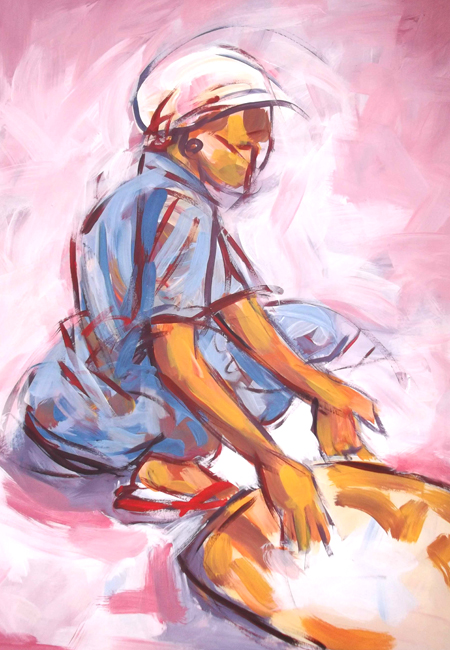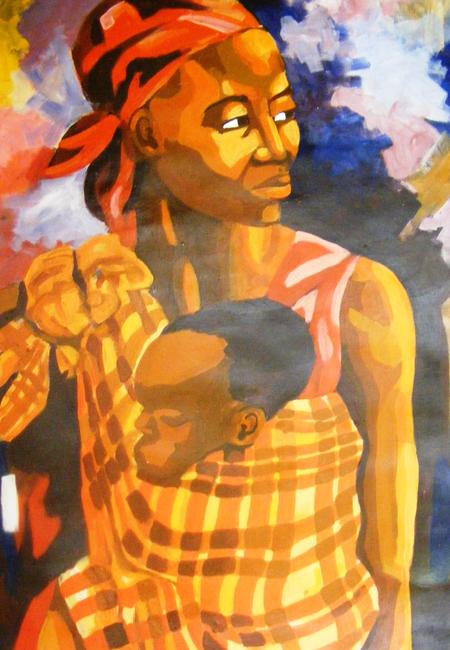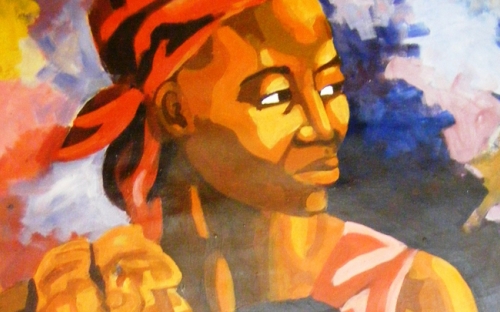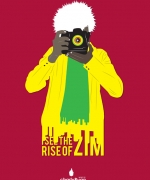Jenipher’s Story
It is a hot April day when I arrive in the Matebeleland North capital of Lupane. It’s my first trip to the growth point almost 180km from Bulawayo and I do not know what to expect. Within the first hour, I find a noisy local sadza joint and meet people with uniquely Zimbabwean names like Talent, Wedzeramari and Lacoste. Everyone I meet has a vibrancy to them, and they all have a story to tell. However it is Jenipher Nyoni who arrests my attention. She greets the people in the room, seamlessly changing from Ndebele, to Shona, to English, to Tonga depending on who she is talking to. She is a bubbly woman full of jokes who looks at least 10 years younger than her actual age of 40.
I ask her how she came to live in Lupane and she generously gives me her time and shares her harrowing personal life story. As I listen, I think things like this only happen in the movies! There are numerous twists and turns in the plot, that you would not believe could happen to one person, but they did. They happened to her. This is Jenipher’s story…

A native of Lupane district, Jenipher grew up with her parents, brother and sister. After grade 5 her parents could no longer afford to send her to school so she was sent to live with relatives in Bulawayo, where she eventually met the man who would become her husband, “After I left school, I was sent to live with my late sister, but she was having marital problems, so I went on to stay with my Babamunini (uncle) and then my Tete (aunt). I was staying with Tete when I met my husband. He was 18 years older than me and I was to be his fifth wife. I was 13 when I went to stay with him.”
She mentions her age with a relative ease, but it shocks me to my core. A child bride at the tender age of 13. She spent the next fourteen years with her husband in Esigodini often crying herself to sleep as the relationship became abusive over time. As she grew older, even though she could not go back to school, she resolved to find a way to generate income so she could improve her situation.
“I joined a local women’s club where I learned basket weaving. People used to buy our baskets, so I managed to earn a little money for myself. I had to do something to help myself.”
Jenipher’s expression changes as she remembers those days. Her cheerful exterior falters, and I ask her if she would like to stop. She shakes her head emphatically and insists, “People should know my story, to know that they are not alone.”
It was only after her daughter Nqobile was born that she realised she had to leave her abusive relationship to protect herself and her child. After a visit to a clinic she was diagnosed HIV positive so she chose to return to her parents in Lupane where she reconnected with her family and friends.
“I used to like to play football for fun and exercise. When I was playing one day an old friend of mine suggested I move to Victoria Falls. She said she was playing for a club there, and that there were opportunities in vending.”
An avid football player, Jenipher did not hesitate to move to the Falls area with her four year old daughter. Day after day she and other women would hoard and then resell tomatoes to people in the area. In their free time they played football for a local women’s football club. She was finally able to provide for her child. Things were coming together for her, or so she thought.

On a chilly morning in 2004, Jenipher woke up early to start her day of selling tomatoes. It would be a day like any other day, she thought, but she was wrong. She had heard about Murambatsvina. She had also heard that people’s homes were being mowed down by local authorities, but she and her neighbours didn’t believe it would happen to them. Unfortunately it did.
Plates rattled in the cabinet, and the ground shook like an earthquake. Jenipher bundled up Nqobile and ran outside to find chaos in Chinotimba township.
“People were running in all directions trying to save what little they could before their homes and belongings were destroyed. I lost everything. I was homeless.”
The next few weeks Jenipher was in a daze as she was herded from place to place until a church group that was helping displaced people with food, managed to provide some trucks to help transport people back to their rural homes. “I really was hoping it was a dream and that the council would provide us all with stands or houses, but that did not happen.”
She joined the legions of unemployed in Lupane. Did you ever just feel like giving up? I ask her. “Yes,” she responds calmly, “Every day, but I had a child to think about. Who else was going to take care of her?”
When she was trying to find her feet again she was visited by a Village Health Worker at her parents’ home, and was signed up for free anti-retro viral treatment. This gave her the impetus she needed to move forward.
Remembering the weaving skills she had acquired in Esigodini, Jenipher joined Lupane Women’s Centre and over time, and with additional training, she became a master weaver and then a trainer, selling her baskets to the Centre’s diverse consumer base. She joined the Centre staff as a caretaker in 2009.
But her story doesn’t end there. She now has the added responsibility of taking care of her late sister’s grandchildren. “My sister died of AIDS. She was in denial about her HIV status for a long time and refused to go for treatment for three years until she passed away. Her daughter had cervical cancer. There wasn’t enough money to pay for the expensive treatment she needed, so she also died, leaving 2 children.”
As providence would have it, both of her sister’s grandchildren passed their grade 7 exams so well that they managed to get bursaries to attend high school.
“Fortunately, I do not pay fees, but I need to provide them with uniforms and some other things for boarding school. But they are growing children, so financially it is hard to keep up with their clothing needs. My daughter Nqobile is now 18, and if she gets part time jobs she helps me financially. I am actually saving up right now to clear the debt at Nqobile’s school so we can collect her form four results. She wants to be a doctor, you know.”
Her face beams with pride as she speaks about her daughter. You can see she wants the best for her. She tells me that Nqobile is the first person in her family to get to form four. A great achievement that is not lost on Jenipher. I am both humbled by her and proud for her, because I can see she has achieved so much to ensure that the three children she is raising are educated and self-sufficient.
The sun has now set and I can hear sungura music blasting down the road at a local beer hall. A group of children head home on their donkey drawn cart and the bus terminus is slowly clearing. After we say our good byes Jenipher stands to head home under the light of rising moon. She says her daughter has cooked for her so she does not want to keep her waiting. We shake hands as she offers me her last few words before leaving, “I want my children to be educated so they can take care of themselves. I want my daughter to finish school and get a job. Because I am living with HIV, you never know what could happen tomorrow. I could get sick, or even die, but I thank God that I have managed to live with this disease for the past 14 years. I’m a survivor.”




